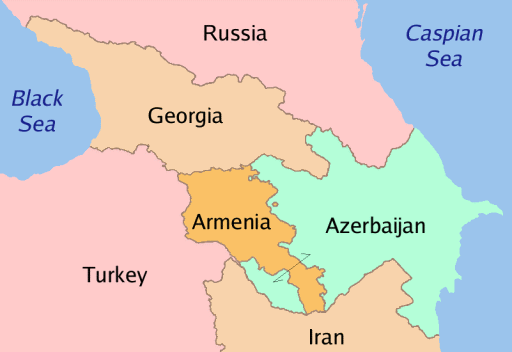Azerbaijan and Armenia Stockpile New Weapons
By Bakhtiyar Aslanov (the 30/10/2013 issue of the CACI Analyst)
Since the 1994 cease-fire agreement between Azerbaijan and Armenia, negotiations between the parties have been overseen by the OSCE Minsk Group without any particular success towards peaceful solution. After the deadlock in peace negotiations over the Nagorno-Karabakh conflict in 2011, Azerbaijan and Armenia both accelerated their stockpiling of arms and intensified their public rhetoric of preparing for a new war.
“CACI Analyst, October 2, 2013”
Russia's Principled Caucasus Policy
Stephen Blank (the 02/10/2013 issue of the CACI Analyst)
Five years after its war with Georgia, Russia is now moving to institutionalize its gains into enduring territorial-political structures. During September 2013, Moscow effectively blackmailed Armenia into joining the Eurasian Union and has now announced that it is going to sign a treaty with South Ossetia and Abkhazia, recognizing the “international borders” between them and Russia. As a result, Russian soldiers are now erecting fences effectively demarcating these territories from Georgia, if not formally annexing them to Russia. Both of these moves undermine the sovereignty, and in Georgia’s case the integrity, of these two South Caucasian states and demonstrate that Russia’s neo-imperial effort to create a closed bloc in the CIS is intensifying and accelerating.

Armenia Places Its First Eurobonds
Haroutiun Khachatrian (the 02/10/2013 issue of the CACI Analyst)
The Armenian government has recently faced much criticism making the case that it has lost its ability to take decisions independently. This is a reaction to the September 3 statement of Armenia’s President Serzh Sargsyan, who said his country was seeking to join the Russia-led Customs Union, thus destroying the results of four years of negotiations with the EU over an Association Agreement, which would have been finalized at the Eastern Partnership summit in Vilnius in November. Sargsyan’s move was widely interpreted as a result of Russian pressure on a small and weak country that needs support in many areas.


